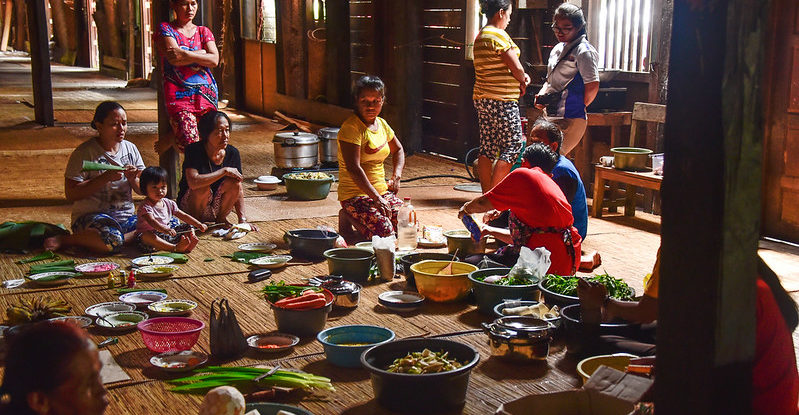ICRAF scientist Stepha McMullin and CIFOR Research Associate Mulia Nurhasan explore their experience working on sustainable livelihood and nutrition issues with communities in East Africa and Southeast Asia.
The world has more than 50,000 plants, according to the U.N. Food and Agriculture Organization, but despite this diversity more than 60 percent of food energy comes from rice, wheat and maize, which has led to issues such as ecosystem degradation due to agricultural intensification and expansion.
Meanwhile, dietary changes that are occurring in urban and rural communities all over the world also cause a double burden of malnutrition. Around 800 million people are undernourished while 42 million children and 1.9 billion adults are overweight or obese, the World Health Organization says.
Yet, changes are on the way. Communities in West Papua, Indonesia, for example, have been voicing their desire to go back to a more traditional diet consisting of sago, tubers and other vegetables, instead of the widely consumed rice and processed food.
Listen to the podcast to find out the importance of working with local communities as part of the solution to this matter: to grow, nourish and sustain. Together.
Related stories:
Related project:
We want you to share Forests News content, which is licensed under Creative Commons Attribution-NonCommercial-ShareAlike 4.0 International (CC BY-NC-SA 4.0). This means you are free to redistribute our material for non-commercial purposes. All we ask is that you give Forests News appropriate credit and link to the original Forests News content, indicate if changes were made, and distribute your contributions under the same Creative Commons license. You must notify Forests News if you repost, reprint or reuse our materials by contacting forestsnews@cifor-icraf.org.
